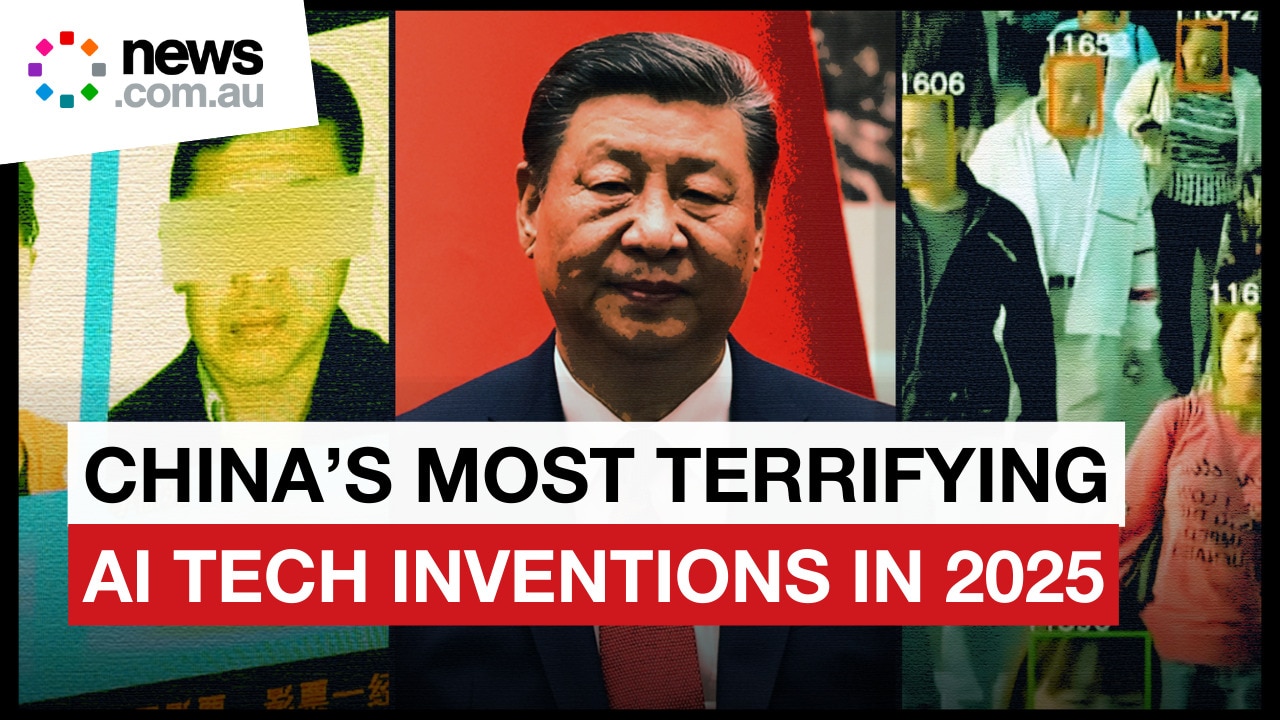‘Falling behind’: New report reveals big AI wake up call for Australia
Artificial intelligence is becoming increasingly embedded in our everyday lives, but experts have now issued a warning to Aussies over how it is being used.

Business
Don't miss out on the headlines from Business. Followed categories will be added to My News.
Australia is falling behind in a key area, with a new report revealing we need to make some major changes – and quickly – if we want to keep up with the rest of the world.
No matter your feelings about artificial intelligence (AI), there is no denying that it is becoming increasingly embedded within people’s daily lives.
From asking ChatGPT to help you write your shopping list to using AI to help give your work presentation some extra pizzazz, most people have used AI in some form or another.
The University of Melbourne’s report, Trust, attitudes and use of Artificial Intelligence: A global study 2025, found half of Australian regularly use AI, but just 36 per cent are willing to trust it.
As part of the study, which was completed in collaboration with KPMG, 48,340 people were surveyed across 47 countries, including Australia, between November 2024 and January 2025.
The report has highlighted just how different Australia’s perception of and education around AI is compared to other countries.

Australia ranks among the lowest globally on acceptance, excitement and optimism about AI, alongside New Zealand and the Netherlands.
Just 30 per cent of Australians believe the benefits of AI outweigh the risks, the lowest ranking of any country. On top of this, 55 per cent say they realise the benefits, compared to 73 per cent globally.
Professor Nicole Gillespie, Chair of Trust at Melbourne Business School at the University of Melbourne and one of the leads of the study, said there are three key factors contributing to Australia’s comparatively low level of AI trust and acceptance.
“One is that Australians are worried about AI and its impact on society,” she told news.com.au.
Almost 80 per cent of Australians were concerned about the negative outcomes of AI use and 37 per cent said they have personally experienced to observed those negative outcomes.
“In and of itself, that’s not that different to other countries. The difference is that Australians have those concerns, but they’re not being offset by the experience of the benefits,” Professor Gillespie said.
So, while Australians see the benefits of AI, we aren’t of the mind that these benefits outweigh the risks to the extent of some other countries.


Another contributor to this gap between Australia and other parts of the world is our low rates of AI training.
Only 24 per cent surveyed have had formal or informal training in AI, compared to almost two in five globally.
Professor Gillespie also noted that regulation of AI is “lagging” in Australia. It is clear that Australians want regulation but just 30 per cent feel the current laws and safeguards are adequate.
“Again, we see this gap between our expectations of regulation and what’s actually being delivered,” she said.
Speaking to news.com.au, KPMG Australia Chief Digital Officer John Munnelly, said it is time for Australia to “take the next step” in terms of regulation.
He said that when people and corporates feel like there are ground rules and boundaries in place when it comes to AI, then we will see a surge in investment.
“I think we are just a little bit behind as a country compared to some of the other countries that are clearly moving ahead pretty quickly embracing it,” Mr Munnelly said, noting that India in particular is surging ahead with AI.
“That’s an economy that you would think will be severely impacted economically by AI and so they’re driving into it quickly.
“They’re investing, they’re pushing out free education. I think we could learn a little bit from some of the way the emerging economies are working.”
Mr Munnelly said not embracing AI and improving regulation would be a “missed opportunity” for Australia, noting we are one of the economies that has “the most” to gain from AI in terms of productivity.

He said the majority of Australia’s economy is made up of services, meaning there are a lot of opportunities for businesses to incorporate AI.
“There’s great ways for AI to help in if it’s trusted, and people will use it if they trust it. So I think it’s solving this trust thing really does then unlock the productivity that brings revenue back on shore,” he said.
“I just think we’re at the beginning of a great opportunity, but we’re probably just not awake to it like some of the other economies are.”
One particularly concerning finding from the report centred around the current use of AI in Aussie workplaces.
Almost half of local employees admitted to using AI in ways that go against company policies, including uploading sensitive company information into free public AI tools like ChatGPT.
Of those surveyed, 57 per cent said they also rely n AI output without evaluating accuracy and many admitted to hiding their use of it at work and presenting AI-generated content as their own.
Professor Gillespie said these statistics were “particularly concerning” as it opens companies up to a number of security and reputational risks, along with the potential for financial loss.
If Australia doesn’t get serious about regulation and education then it is “only a matter of time before this does start to create more problems”.
“This is where we do believe that this complacent and inappropriate use is being fuelled by a lack of training of employees. So it comes back to AI literacy, but also insufficient guidance and governance around how these tools should be used,” Professor Gillespie said.
“It is a wake up call. And I think our findings do shine a light on the need for this governance of how employees are using AI work to be strengthened.”
Mr Munnelly agreed, saying there is a “real risk” is companies don’t start to push ahead with some better structures around AI use and they will end up with “accidents” happening as people interact with this technology.
He also noted that we are now seeing a changing workforce, with younger generations coming in who are used to using AI in their daily lives and are expecting that to continue at work.
“So I do think it’s changing and it’s probably going to change fairly rapidly, because in a couple of years time, 30 or 40 per cent of the workforce will have had [AI] in their education environments,” Mr Munnelly said.
“So we need to make sure that everybody in the workforce can keep up.”
Originally published as ‘Falling behind’: New report reveals big AI wake up call for Australia





